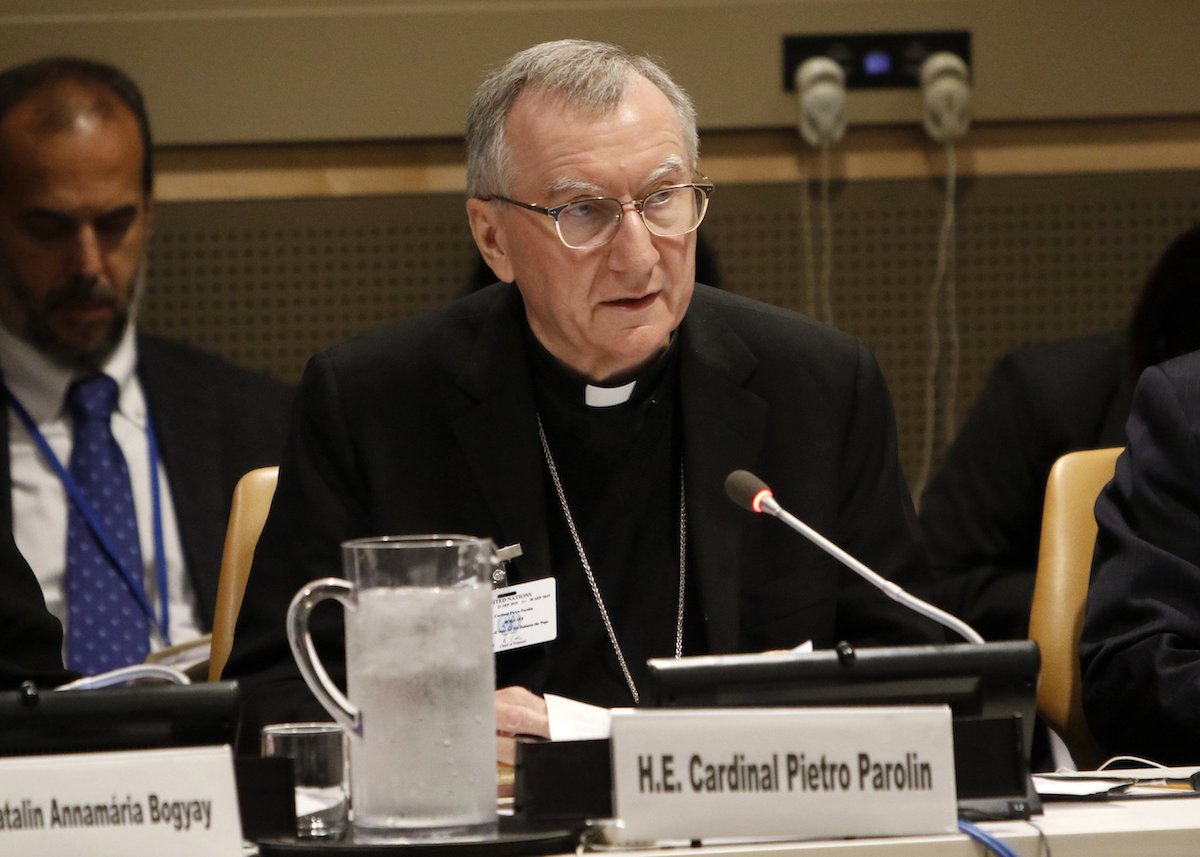Fraternity is more than just a virtuous principle, it is a necessary means to confront the great humanitarian and social challenges facing the world, said Cardinal Pietro Parolin, Vatican secretary of state.
Addressing a virtual event sponsored by the Permanent Observer Mission of the Holy See to U.N. agencies in Geneva April 15, Cardinal Parolin said that in multilateral diplomatic action, fraternity “translates into the courage and generosity to freely establish common goals and to ensure the fulfillment throughout the world of certain essential norms.”
The virtual meeting, known as the “High-Level Event on Fraternity, Multilateralism and Peace,” featured panel discussions with representatives of U.N. organizations and different faiths to reflect on Pope Francis’ call for brotherhood in his encyclical, “Fratelli Tutti.”
In his address, Cardinal Parolin spoke about several issues facing the world that are a priority for the Vatican, including health care access, refugees, work, international humanitarian law and disarmament.
Reflecting on the COVID-19 pandemic, the cardinal said that at first the health crisis created an “indissoluble bond” brought on by a greater awareness “of being a world community sailing in the same boat.”
However, he said, that sentiment gave way to “a race for vaccines and treatments” that revealed a “gap in access to basic care between developed countries and the rest of the world.”
“At all times, we must focus on the underlying principle of service to the common good,” he said. “With this in mind, the international community has an obligation to ensure that any COVID-19 vaccine and treatment is safe, available, affordable and accessible to all who need it.”
Cardinal Parolin also highlighted the increasing number of refugees and displaced persons, insisting that attending to their needs “is not only a testimony of fraternity but a recognition of a concern for the real needs of our sisters and brothers.”
“Refugees have always been part of history,” he said. “Unfortunately, even today their numbers and their suffering continue to be a wound in the social fabric of the international community.”
A spirit of fraternity, he continued, is also necessary in the pursuit of peace, stability and security desired by all men and women. However, the aspiration for peace cannot be achieved through military activity or the possession of nuclear weapons.
“Certainly, conflicts always cause suffering, not only on those who suffer them but also on those who fight them. It is not rhetorical to say that war is the antithesis of fraternity,” Cardinal Parolin said.






